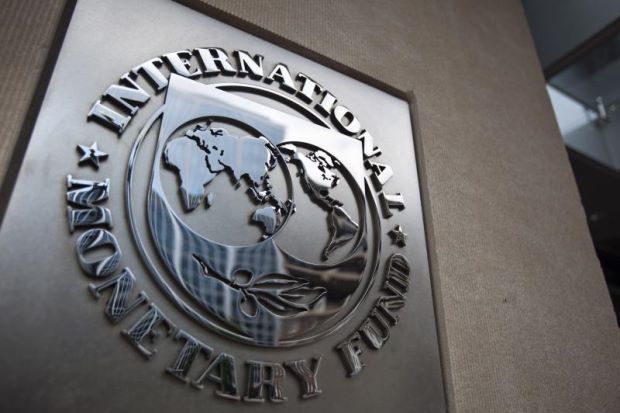"Clouds appear on horizon" for global financial stability, says IMF
Risks to the global financial system have risen over the past six months and could increase sharply if pressures in emerging markets escalate or global trade relations deteriorate further.

Risks to the global financial system have risen over the past six months and could increase sharply if pressures in emerging markets escalate or global trade relations deteriorate further, the International Monetary Fund said on Wednesday.
The IMF, whose autumn meetings with the World Bank get underway on the Indonesian resort island of Bali this week, also noted that while financial stability has been shored up by regulators in the decade since the 2008 global financial crisis, easy financial conditions are contributing to a buildup of potential problems related to high debt levels and "stretched" asset valuations.
But new bank resolution regimes meant to avoid future bailouts are largely untested, the Fund said in its biannual global financial stability update.
"Near-term risks to global financial stability have increased somewhat," the IMF said. "Overall, market participants appear complacent about the risk of a sharp tightening in financial conditions."
The Fund noted that economic growth appears to have peaked in some major economies while the gap between advanced countries and emerging markets was widening. The IMF on Tuesday cut its global growth forecasts due to an escalating U.S.-China trade war and growing financial strains on emerging markets
The United States continues to grow strongly and the Federal Reserve raised interest rates for the seventh time in the last eight quarters at its latest policy meeting in September. U.S. stock markets are also at record highs.
That contrasts with a slowing in the euro area and Japan. China's economy is also showing signs of moderating and that could be exacerbated by its trade disputes with the United States, which has imposed tariffs on $250 billion worth of imports from Beijing and is threatening duties on $267 billion more.
The normalization of monetary policy in the United States as well as a stronger dollar and escalation in trade tensions have already begun to affect emerging market economies, the Fund said.
New IMF research shows emerging market countries excluding China could face debt portfolio outflows of up to $100 billion, a level saw during the global financial crisis.
The Fund cited a number of other near-term risks to financial stability including the possibility of a "no-deal" Brexit or renewed fiscal policy concerns in some highly indebted euro area countries.
It also urged global regulators to keep in place measures taken since the financial crisis and both heighten supervision of market liquidity and raise the number of capital banks have to set aside to cushion any downturn.
"The financial regulatory reform agenda should be completed, and a rollback of reforms should be avoided," the Fund said. "To adequately address potential systemic risks, financial regulation and supervision should be used more proactively."
(With inputs from agencies.)
ALSO READ
EMERGING MARKETS-Stocks, FX slide after U.S. inflation print triggers global selloff
EMERGING MARKETS-Currencies touch 2-month low as dollar rallies on Fed rates prospects
EMERGING MARKETS-Stocks slide as rising Middle East tensions spook markets
EMERGING MARKETS-South Africa's rand rises after inflation slows more than expected
EMERGING MARKETS-Currencies rise as dollar retreats, South Korea's won advances










